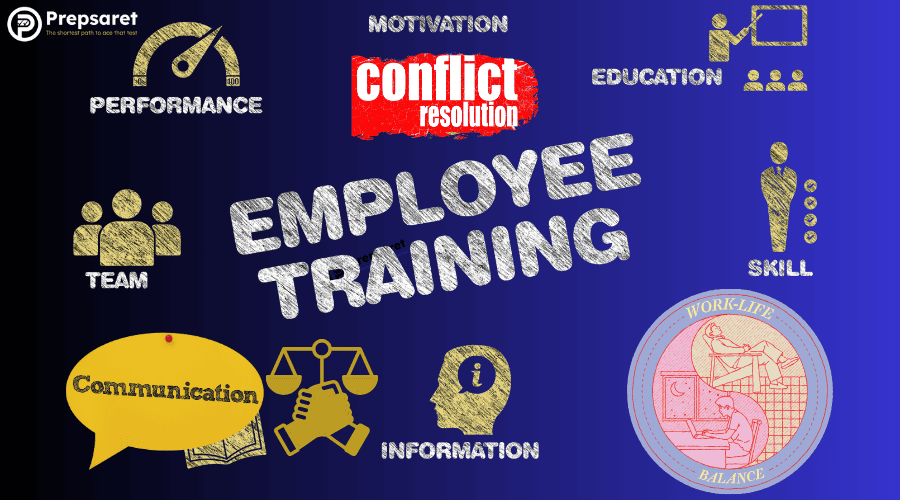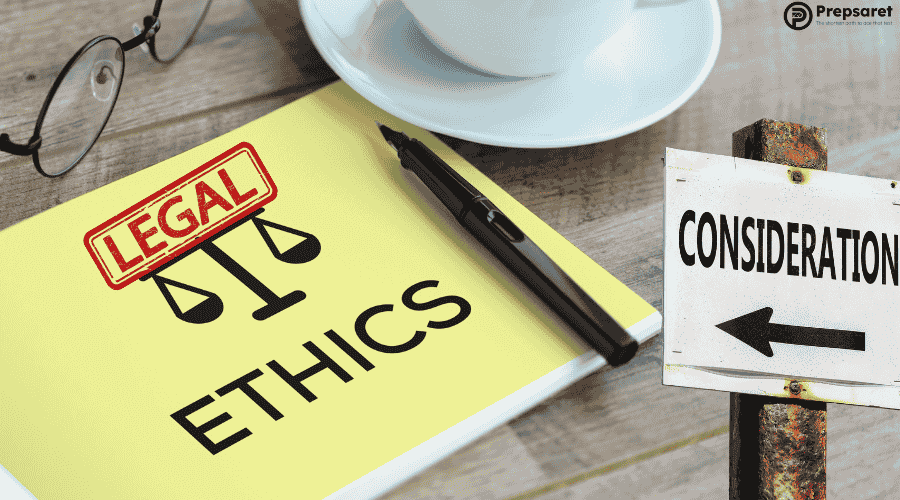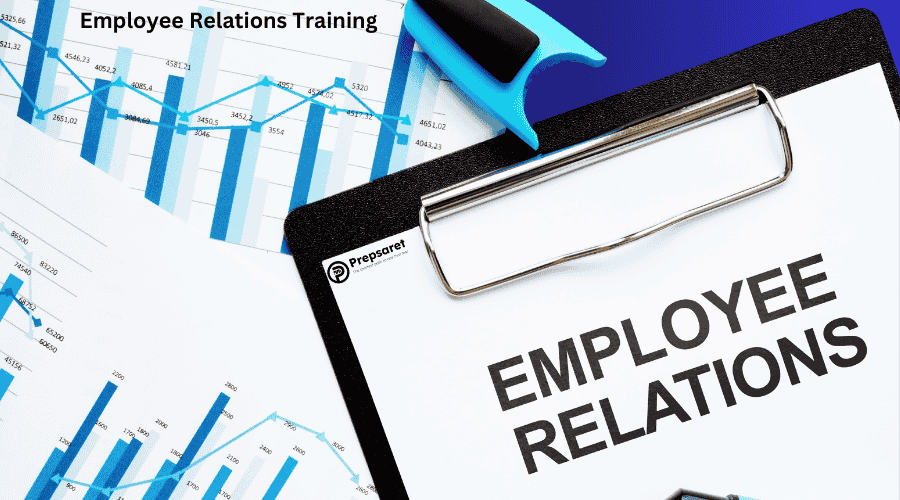Employee relations is the backbone of a productive and harmonious workplace. Employee relations training online free programs help HR professionals and managers navigate complex workplace dynamics, ensuring fairness, compliance, and employee satisfaction.
Whether you’re looking for corporate employee relations training, employee relations training for HR professionals, or specialized programs like employee relations training for healthcare, the right training can transform workplace culture.
Don’t miss out—enroll in employee relations training today to boost your career and improve your organization’s work environment!
Introduction to Employee Relations
At its core, employee relations focuses on the relationship between employers and employees, covering everything from workplace policies to conflict resolution. Strong employee relations lead to higher morale, increased productivity, and reduced turnover.
By investing in HR employee relations training, companies can cultivate a positive workplace culture, ensuring employees feel valued and heard.
Benefits of Strong Employee Relations in the Workplace
- Improved Employee Satisfaction: Happy employees are more productive and engaged.
- Reduced Workplace Conflicts: Proper training in workplace conflict management training minimizes disputes.
- Higher Retention Rates: Employees are more likely to stay in organizations that prioritize fair treatment.
- Legal Compliance: Understanding labor laws reduces the risk of lawsuits and grievances.
- Increased Organizational Success: A well-managed workforce leads to overall business growth.
Overview of SHRM’s Role in Employee Relations Training
The Society for Human Resource Management (SHRM) provides guidelines and certifications in employee relations.
Employee relations certification training programs, including employee relations certification online, help professionals gain the necessary skills to manage workplace issues effectively.
Through SHRM, HR professionals can access best employee relations training programs, covering topics such as labor dispute resolution training and employee engagement training.
For those preparing for employee relations certification SHRM, mastering employee relations is essential, as it is a key component of SHRM exam topics.
Key Components of Employee Relations Training

1. Employee Engagement
Engaged employees are committed to their work and the company’s goals. Employee engagement training ensures that HR professionals and managers create an environment that fosters motivation, reducing absenteeism and boosting productivity.
Strategies to Enhance Employee Satisfaction and Motivation
- Regular Feedback and Recognition: Acknowledging employee contributions improves morale.
- Work-Life Balance Initiatives: Flexible work arrangements can enhance satisfaction.
- Professional Development Opportunities: Investing in online employee relations training courses keeps employees engaged and committed.
Companies can use surveys, one-on-one meetings, and performance metrics to assess engagement. Implementing employee relations training for managers ensures they have the skills needed to keep employees motivated.
2. Performance Management
Effective employee relations contribute to fair and transparent performance management. When managers undergo employee relations skills training for HR professionals, they can provide constructive feedback, manage expectations, and address performance-related concerns efficiently.
Effective Methods for Performance Feedback and Coaching
- 360-Degree Feedback: Gathering insights from peers, managers, and subordinates.
- Regular Performance Reviews: Structured assessments help employees understand expectations.
- Coaching and Mentorship Programs: These help employees develop professionally while aligning with company goals.
Disagreements over performance evaluations can cause tension. Employee relations conflict resolution training equips managers with techniques to handle disputes professionally, ensuring fair outcomes and maintaining trust.
3. Business Continuity
A well-trained HR team can anticipate and address workplace disruptions, ensuring minimal impact on business operations. Employee relations training for manufacturing and employee relations training for retail businesses focus on industry-specific challenges, helping companies maintain stability.
Addressing Workplace Challenges Proactively
By implementing employee relations training programs, organizations can identify potential issues before they escalate. Training in labor relations training and employee relations conflict resolution training ensures that companies handle disputes effectively.
Employee Relations Policies for Crisis Management and Workforce Adaptability
Establishing clear policies helps businesses navigate crises smoothly. Training workshops, such as employee relations training workshops, teach HR professionals to draft and implement policies that support business continuity and employee well-being.
Read also: SHRM Certification Training
Legal and Ethical Considerations in Employee Relations

A strong understanding of labor laws is crucial for HR professionals. Labor relations training covers critical regulations like anti-discrimination laws, workplace safety requirements, and wage policies.
Compliance and Ethical Considerations in Employee Relations
Ensuring compliance with labor laws helps prevent lawsuits and workplace disputes. Companies investing in labor dispute resolution training gain the tools needed to handle legal challenges while maintaining ethical standards.
Check out: SHRM Employment Law Certification
Handling Legal Issues and Grievances
HR professionals must be well-equipped to handle grievances fairly. Employee Relations training ppt presentations often include case studies that illustrate best practices in managing complaints, conducting investigations, and resolving conflicts.
By integrating these key elements, organizations can build a strong foundation for employee relations.
Communication and Conflict Resolution
Effective communication is the foundation of employee relations training for HR professionals and managers. When employees feel heard and informed, they are more likely to be engaged, productive, and loyal to their organizations.
Transparent communication fosters trust between employees and management, reducing misunderstandings and workplace tensions. One of the key aspects of HR employee relations training is ensuring that communication is two-way.
Employees should have the opportunity to voice their concerns and receive honest feedback from their supervisors. This type of open dialogue can significantly improve workplace morale and efficiency.
Techniques for Effective Team Briefing and Consultation
For corporate employee relations training, managers must master effective team briefing and consultation techniques. Regular team meetings, one-on-one check-ins, and feedback sessions help in addressing concerns before they escalate.
Additionally, using digital platforms like internal forums or collaborative tools enhances workplace communication. Employee relations training online free courses emphasize the importance of active listening—where managers not only hear but also understand employee concerns.
Encouraging open discussions and anonymous feedback surveys ensures that employees can speak freely without fear of retaliation.
Conflict Resolution and Mediation Strategies
Conflict is inevitable in the workplace, but handling it effectively is crucial for maintaining a positive work environment. Employee relations conflict resolution training teaches managers and HR professionals strategies to mediate disputes before they impact team dynamics.
Some effective workplace conflict resolution techniques include:
- Mediation: A neutral third party helps conflicting employees find a mutually beneficial solution.
- Negotiation: Encouraging open discussions to reach a fair agreement.
- Workplace conflict management training: Employees learn how to manage and resolve disputes without escalating tensions.
Investing in labor dispute resolution training ensures that organizations have structured processes in place for handling conflicts efficiently and fairly.
Creating a Positive Work Environment
Strategies for Fostering Inclusion and Diversity
Diversity and inclusion are essential in today’s workplaces. Employee relations skills training for HR professionals includes methods for ensuring an inclusive culture where every employee feels valued.
Organizations can foster diversity by:
- Implementing unbiased hiring practices.
- Encouraging diverse leadership representation.
- Providing sensitivity and bias training.
Building a Supportive Work Culture
A supportive work culture helps retain employees and boost engagement. Employee engagement training focuses on how managers can create an environment where employees feel motivated to contribute their best work.
Some key strategies include:
- Providing mentorship and career development programs.
- Offering flexible work arrangements.
- Promoting a healthy work-life balance.
Employee Recognition and Motivation Programs
Recognition plays a significant role in maintaining employee satisfaction. Best employee relations training programs emphasize the importance of acknowledging employees’ efforts. Simple actions like “Employee of the Month” awards, bonuses, or even public praise can significantly boost morale and motivation.
Read also: What Is the Entry Level Into Working in HR
Handling Grievances and Disciplinary Actions
Handling grievances effectively is a crucial component of labor relations training. Employees should have clear guidelines on how to report workplace concerns. Employee relations training for managers teaches supervisors to handle complaints with fairness and confidentiality.
Conducting Grievance Interviews Effectively
An essential skill in employee relations training workshops is conducting grievance interviews. Managers should:
- Maintain confidentiality.
- Listen without bias.
- Follow up with timely resolutions.
Implementing Disciplinary Procedures Fairly
Disciplinary actions should be fair and consistent. Employee relations certification training ensures that HR professionals apply company policies equitably. Following a structured approach helps avoid legal complications and maintains workplace harmony.
Employee Training Programs

Training programs vary depending on industry needs. Employee relations training for healthcare, manufacturing, and retail businesses each have unique challenges and tailored solutions.
Common training methods include:
- On-the-Job Training (OJT): Employees learn by doing, under supervision.
- Classroom Training: Structured in-person sessions for knowledge sharing.
- Online Training Courses: Online SHRM-SCP test prep and Online SHRM-CP test prep courses provide flexibility and accessibility.
- Mentorship Programs: Pairing employees with experienced mentors for guidance.
- Workshops and Seminars: Interactive learning through group discussions and case studies.
Additional Resources:
- SHRM Publications and Tools – Further reading on employee relations best practices.
- Sign Up for Employee Relations Courses – Enroll in leading programs to develop expertise.
Benefits of Employee Training Programs
- Improved Employee Performance: Well-trained employees perform their tasks more efficiently and with higher quality.
- Higher Employee Engagement: Engaged employees are more likely to stay with a company, reducing turnover rates.
- Better Conflict Resolution Skills: Workplace conflict management training helps prevent and address disputes effectively.
- Enhanced Compliance and Ethical Awareness: Employees understand company policies and industry regulations, reducing legal risks.
- Increased Productivity: Training enables employees to work smarter, not harder, boosting overall company efficiency.
Training Delivery Methods
In-Person vs. Virtual Training: Benefits and Challenges
Organizations must decide between corporate employee relations training in-person or online. Each has its pros and cons:
- In-Person Training: More interactive but costly and time-consuming.
- Virtual Training: Cost-effective and flexible but lacks hands-on engagement.
For those seeking flexibility, employee relations training online options provide accessible and cost-effective learning solutions.
Interactive Learning Techniques (Case Studies, Role-Playing, Group Discussions)
Engaging training methods make learning more effective. Employee Relations Training Programs often include:
- Case Studies: Real-world scenarios help learners apply concepts.
- Role-Playing: Practicing different workplace situations enhances decision-making skills.
- Group Discussions: Encourages teamwork and collaborative problem-solving.
Implementation Strategies
-
Communicating the Purpose and Benefits of Training to Employees
Employees are more likely to participate in training when they understand its value. HR should clearly communicate how training benefits both employees and the organization.
-
Scheduling and Feedback Mechanisms for Continuous Improvement
A well-structured training schedule ensures maximum participation. Gathering employee feedback helps improve training effectiveness. Encouraging employees to sign up for employee relations courses fosters a culture of continuous learning.
By enrolling in employee relations training programs, HR professionals and managers can enhance workplace harmony, employee engagement, and overall productivity. If you’re ready to take your HR career to the next level, get certified in employee relations training today!
Measuring the Success of Employee Relations Training
For any Employee Relations Training Program, measuring its effectiveness is essential. Companies invest time and resources into training employees and managers, so tracking results ensures long-term value.
Evaluation Metrics for Training Effectiveness
- Employee Feedback Surveys – Conduct post-training surveys to assess knowledge retention and employee satisfaction.
- Improvement in Conflict Resolution – Monitor the decrease in workplace disputes after Employee Relations Conflict Resolution Training.
- Managerial Performance Metrics – Measure how well managers apply training concepts to workplace scenarios.
- Retention and Engagement Rates – Assess changes in employee turnover and satisfaction.
- Productivity Metrics – Identify improvements in team collaboration and efficiency.
A successful HR employee relations training program fosters an inclusive, fair, and engaging workplace. Employees who feel valued are more likely to stay with the company, reducing turnover and increasing productivity.
Investing in workplace conflict management training ensures proactive resolution of disputes before they escalate.
Read also: Why Employers Prefer Candidates with SHRM Certifications
Why You Should Prepare for Your SHRM Certification with Prepsaret
If you’re looking to get certified in employee relations training, SHRM certification is the gold standard. Employee relations certification SHRM helps HR professionals advance their careers, ensuring they have the skills to handle complex workplace situations.
What Prepsaret Offers:
- 500+ SHRM practice questions with detailed explanations – Master key HR concepts with real-world scenarios.
- In-depth lessons covering key SHRM topics with interactive quizzes – Reinforce learning with engaging study materials.
- Affordable pricing and free access options – Accessible learning for HR professionals at all levels.
- Real-world simulations – Practical experience to prepare for certification exams.
If you’re serious about employee relations certification online, enroll in Prepsaret’s courses today!
Read also: What is the Best Way to Prepare for the SHRM?
FAQs
What is the Purpose of Employee Relations Training?
The goal is to create a positive work environment where employees feel heard and valued. Labor relations training helps managers and HR teams improve communication, reduce conflicts, and maintain compliance with employment laws.
Is Employee Relations the Same as HR?
Not exactly. HR covers recruitment, payroll, and benefits, while employee relations training for HR Professionals focuses on workplace dynamics, conflict resolution, and employee satisfaction. Strong employee relations support overall HR effectiveness.
What is Employee Relations for Beginners?
It’s the foundation of a healthy workplace. Beginners should start with online employeeRelations training courses, covering key topics such as performance management, labor laws, and employee engagement.
What is the Golden Rule of Employee Relations?
The golden rule of employee relations is to treat others as you would like to be treated. This principle emphasizes respect, fairness, and empathy in all interactions with employees.
By fostering an environment where employees feel valued and respected, organizations can enhance morale, improve productivity, and build strong employee relations.
Enroll in Employee Relations Training Today!
Strong employee relations drive workplace success. Investing in best employee relations training programs leads to higher engagement, improved productivity, and reduced conflicts. For those looking to specialize, employee relations certification training is a must.
Whether you’re in employee relations training for healthcare, manufacturing, or retail businesses, continuous learning is key. Don’t wait—enroll in employee relations training today and take your career to the next level!

